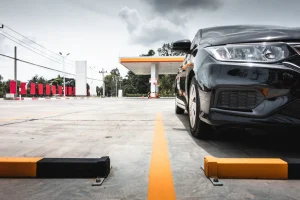One of the biggest selling points for new cars is their fuel economy. However, the same model can get different mileage depending on a variety of factors. This article will discuss factors that affect your vehicle’s fuel efficiency.
Driving Behaviors
No matter how fuel efficient a car is advertised to be, it ultimately comes down to the user’s driving behavior. Quick trips around town wastes fuel. Starting the engine uses a significant amount of gasoline and multiple starts will make an impact on your fuel efficiency. With the constant start and stop, excessive idling and traffic jams can also decrease MPG. Driving at higher speeds increases the aerodynamic drag, reducing fuel economy. Safe, controlled, and consistent driving will also improve your vehicle’s mileage.
Fuel Type
The type of fuel your vehicle uses will also impact your efficiency. Lightweight cars are required to meet regulations that promote fuel economy and limit greenhouse gas emissions. While gas is a cleaner fuel alternative, it is not as effective as diesel. Diesel trucks offer greater fuel efficiency than gasoline trucks. The fuel has a thicker density allowing it to produce more energy using less fuel. A diesel engine can have the same amount of power as gas but at a lower RPM. While diesel is more economical, gas and electric cars are much more environmentally friendly, making them the preferred choice for many customers.
External Temperature
Depending on the season, the external temperature can affect your car’s fuel efficiency. The hotter the climate, the farther the oxygen molecules are spaced out. Because of this, your engine consumes less fuel with each stroke. When there is a cooler external temperature, the air molecules are denser. This makes them contract becoming less fuel efficient. During cold seasons, it is important to keep your car stored in a warmer area, like a garage, to prevent pipes from freezing and help increase your fuel efficiency. Most high-end sports cars have functional intakes that draw air from outside into the car’s intake, increasing the temperature of the air and the car’s efficiency.
There are various factors that influence your vehicle’s fuel efficiency. The make of your car will significantly impact its fuel usage. Ultimately, it comes down to the driver. Driving style can turn even the most fuel-efficient rides into a fuel burning trip. How fuel efficiency affects your decision will ultimately depend on the driving experience you want.
Read this next: What You Need to Understand About Car Insurance


